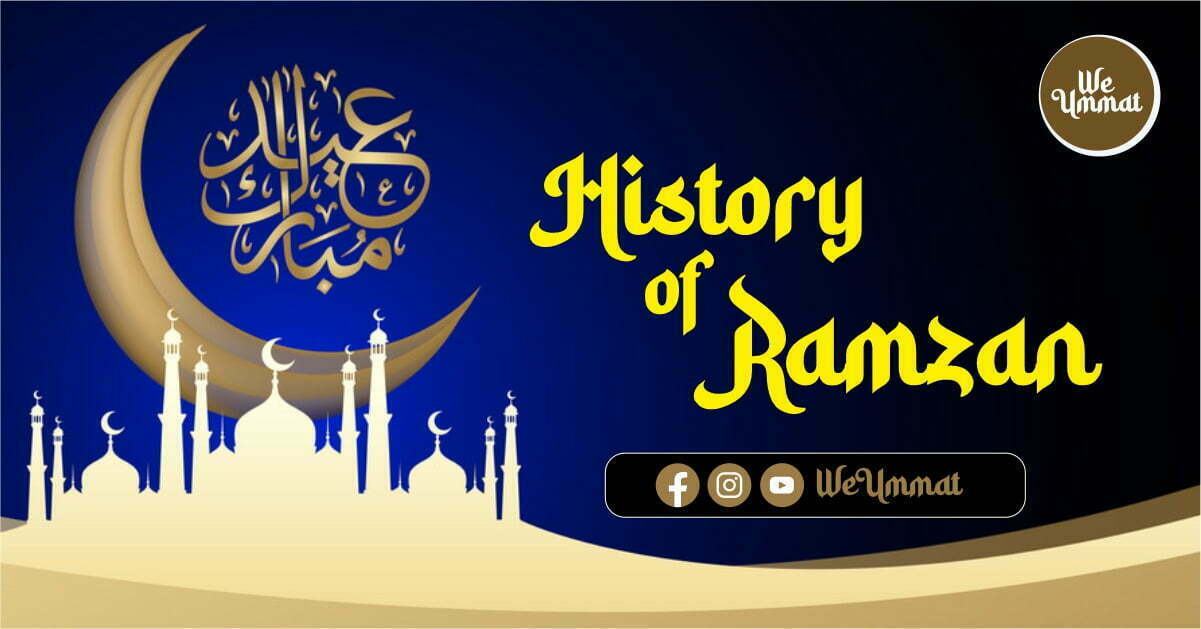The Historical Origins of Ramadan
The practice of fasting during Ramadan began during the second year of the Hijra (624 CE), when the Prophet Muhammad (peace be upon him) migrated from Mecca to Medina. The Qur’an explicitly mentions fasting in Surah Al-Baqarah:
“O you who believe! Fasting is prescribed for you as it was prescribed for those before you that you may become righteous.”
(Quran, 2:183)
This verse not only establishes fasting as a religious obligation but also connects it to the practices of earlier communities of faith, emphasizing continuity in the spiritual discipline of fasting.
Why Do Muslims Fast During Ramadan?
Fasting during Ramadan serves multiple purposes:
- Spiritual Growth: It is a time for Muslims to purify their souls, practice self-discipline, and draw closer to Allah through increased prayer and worship.
- Self-Control: By abstaining from food, drink, and other physical needs, Muslims develop greater self-control and patience.
- Empathy for the Less Fortunate: Fasting helps Muslims to empathize with those who are less fortunate and hungry, fostering a sense of community and charity.
- Obedience to Allah: Fasting is an act of obedience and devotion, fulfilling one of the Five Pillars of Islam.
The Benefits of Fasting During Ramadan
Fasting during Ramadan has numerous benefits:
- Spiritual Benefits: Increased closeness to Allah, forgiveness of sins, and a heightened sense of spiritual awareness.
- Physical Benefits: Fasting can improve metabolic health, detoxify the body, and promote overall well-being.
- Social Benefits: Ramadan fosters a sense of unity among Muslims worldwide, as they collectively engage in fasting and prayer.
- Psychological Benefits: The month of Ramadan can bring a sense of peace, reduce stress, and increase focus on personal goals and self-improvement.
How to Make the Most of Ramadan in 2025
To fully benefit from the holy month of Ramadan, Muslims should consider the following tips:
- Increase Your Prayer Life: Engage in additional prayers, such as Taraweeh (night prayers), and make a habit of waking up for Tahajjud (late-night prayer).
- Read and Recite the Qur’an: Dedicate time daily to reading and understanding the Qur’an. Aim to complete the entire Qur’an during the month.
- Observe Fasting with Intention and Gratitude: Approach fasting with a positive mindset, focusing on the spiritual rewards rather than the physical challenges.
- Give Generously to Charity: Use this month to increase your charitable acts, whether through monetary donations, volunteering, or simply helping others in need.
- Strengthen Family Ties: Ramadan is a time for family and community. Spend quality time with loved ones, breaking fast together and sharing in the blessings of the month.
Important Dates and Observances for Ramadan 2025
- Start of Ramadan: Expected around the evening of March 29, 2025 (subject to moon sighting)
- Laylat al-Qadr (Night of Decree): Likely to fall on one of the odd nights in the last ten days of Ramadan, most commonly observed on April 8, 2025.
- Eid al-Fitr: Expected around April 28, 2025, marking the end of Ramadan.
Frequently Asked Questions (FAQ) About Ramadan
When did fasting become compulsory for Muslims?
Fasting during Ramadan became compulsory during the second year of the Hijra (624 CE). Initially, Muslims were instructed to fast for a few days, but this was later extended to the entire month of Ramadan.
Why did Allah give us Ramadan?
Allah prescribed Ramadan as a time for Muslims to engage in self-reflection, self-discipline, and spiritual growth. The Qur’an states:
“O you who believe! Fasting is prescribed for you as it was prescribed for those before you that you may become righteous.”
(Quran, 2:183)
Conclusion
Ramadan is a month of immense spiritual significance for Muslims worldwide. It is a time for fasting, prayer, reflection, and community. By observing Ramadan with sincerity and devotion, Muslims can strengthen their relationship with Allah, purify their souls, and earn great rewards in this life and the hereafter. As we approach Ramadan in 2025, let us prepare our hearts and minds to fully embrace the blessings of this holy month.
